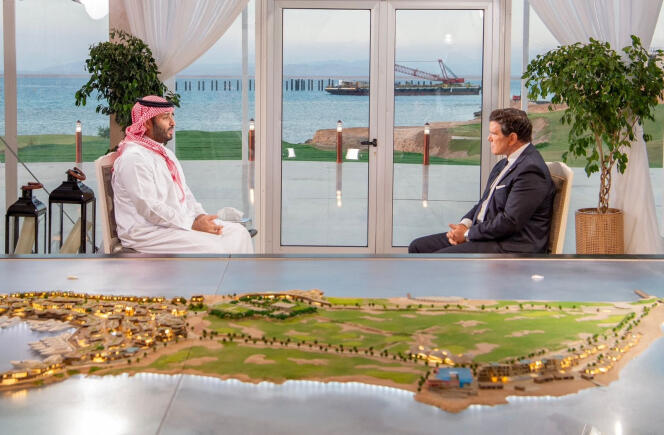


As the meeting between US President Joe Biden and Israeli Prime Minister Benyamin Netanyahu was wrapping up in New York on Wednesday, September 20, on the sidelines of the United Nations General Assembly, Saudi Crown Prince Mohammed bin Salman voiced his support for the Biden administration's negotiations on a normalization agreement with Israel on the conservative Fox News channel. "Every day, we get closer [to an agreement]. it seems it’s for the first time this one is serious. We're going to see how it goes (...)," said the 38-year-old crown prince, known as "MBS." He went on to say that "if the Biden administration succeeds, it would be the biggest historical deal since the Cold War."
"We hope [the negotiations] will reach a place that will ease the life of the Palestinians and get Israel as a player in the Middle East," continued MBS. While presenting the Palestinian issue as "very important" and that it needs to be "solved," the young monarch refused to get into the details of Saudi demands on the matter. Speaking of "needs" rather than rights, he seemed far from making recognition of Israel conditional upon the creation of a Palestinian state, as provided for in the 2002 Arab Peace Initiative, the brainchild of the late Crown Prince Abdullah, which is still officially endorsed by the kingdom. Nor did he express any reservations as to the advisability of Riyadh sealing an agreement with Netanyahu, leader of the most right-wing coalition in Israel's history, who makes no secret of his desire to annex entire swathes of the West Bank.
Bin Salman went to great lengths to justify the concessions he is demanding from the United States – a defense pact, sophisticated weapons, and support for a civilian nuclear program – concessions that face resistance in the US Congress. He called for closer security and economic cooperation, deeming it "crucial" for the United States as much as for Saudi Arabia, for security in the Middle East and the world. The Saudi strongman sought to strike a chord with American officials, who are concerned about Riyadh's rapprochement with China, saying he wanted to "save effort and headache on the Saudi side for not switching to other places."
In response to concerns in the United States and Israel about the development of a civilian nuclear program on Saudi soil, including uranium enrichment, bin Salman tried to convince everyone that his objective was not to acquire nuclear weapons, which he considers "a bad move." However, he reiterated his position that if Iran were to acquire such a weapon, "[Saudi Arabia] have to get one, for security reasons, for balancing power in the Middle East," but that this is not his goal.
You have 18.17% of this article left to read. The rest is for subscribers only.
